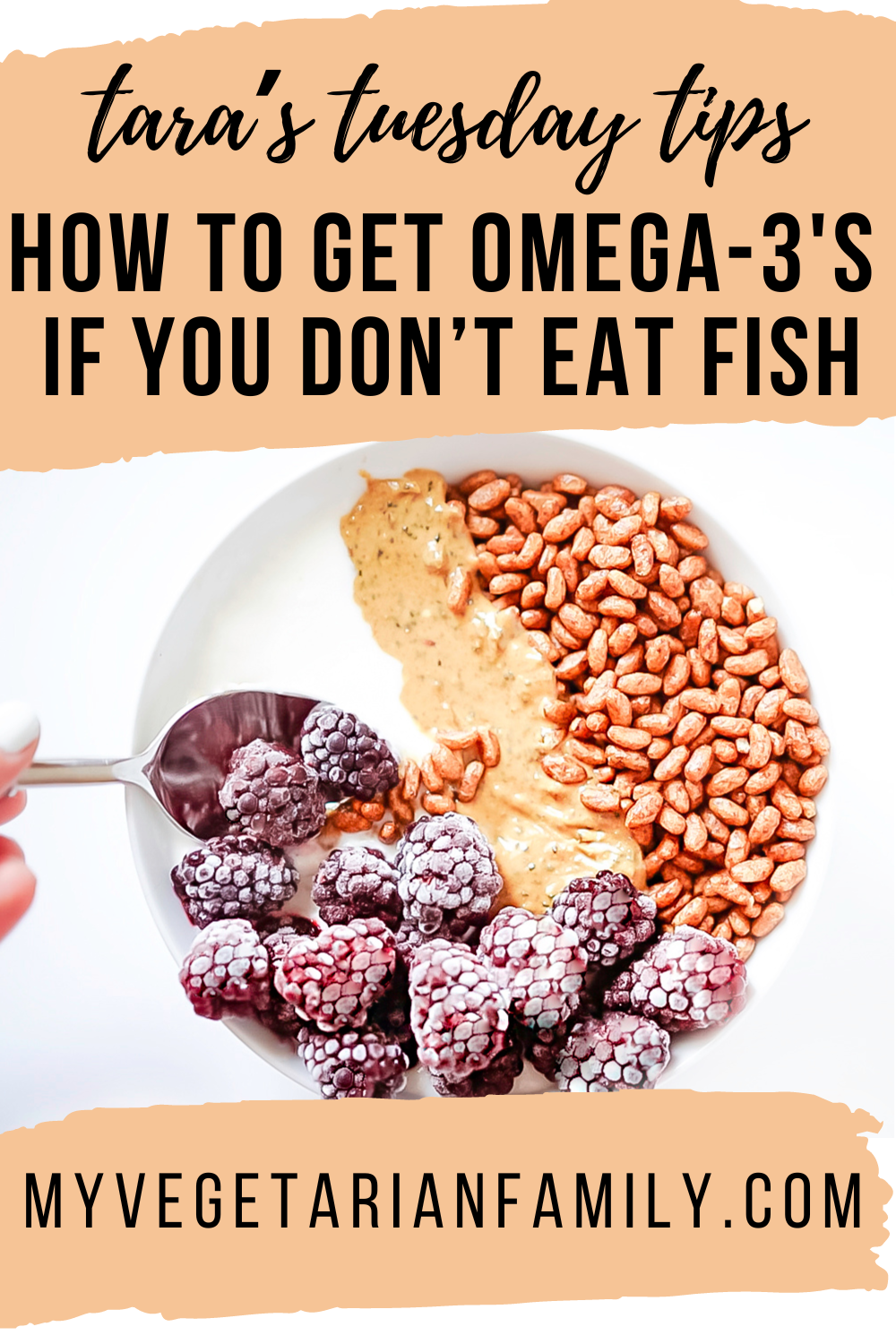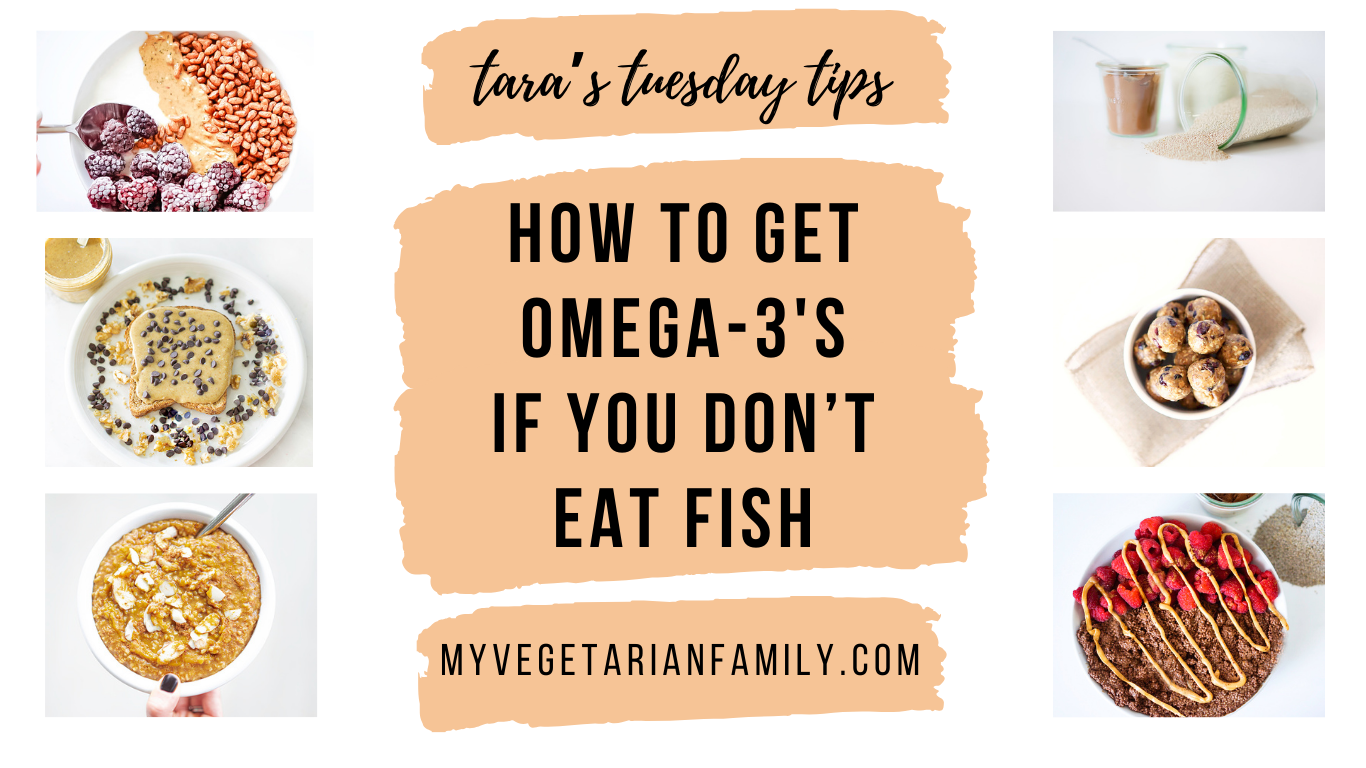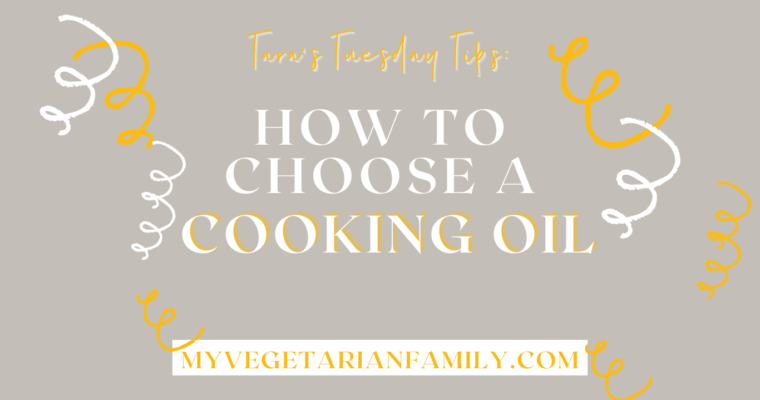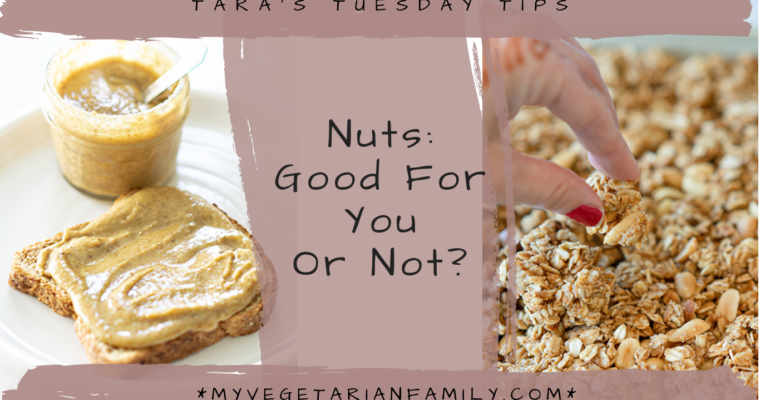Don’t eat fish? Me either! But the first thing most of us think of when we think of Omega-3 fatty acids is fish. Does that mean if we want to get enough omega-3 in our diets we need to eat fish? Nope! Today, my tips take a deep dive into how to get omega-3s if you don’t eat fish.
Tara’s Tuesday Tips:
How to Get Omega-3s if You Don’t Eat Fish
Our bodies need fats to thrive, preferably polyunsaturated fats. Omega-3s are fatty acids essential to our body functions. The unique thing about them is that we must get them from our diet. What might come as a surprise to some of you is that yes, we must eat foods containing these special fatty acids but no, it does not need to be fish. We have all heard that fish and fish oil have a high omega-3 content, but what if you can’t or won’t eat fish? What should you eat? My tips this week help!
What are Omega-3s?
- Omega-3 is short for omega-3 essential fatty acids
- Omega-3s are polyunsaturated fatty acids
- These are essential to us, our bodies can’t make them, we must get them from our food
- There are 3 types of omega-3 fatty acids:
- ALA (alpha-linoleic acid)
- EPA (eicosapentaenoic acid)
- DHA (docosahexanoic acid)
Why are Omega-3s Important?
- Cell structure
- Brain health
- Heart health
- Keeping triglyceride levels normal
- Reduce inflammation
- Cognitive development of fetus and infants
What to Eat if You Don’t Eat Fish
Yes, it is true, most people get their omega-3s EPA and DHA from fish. However, plant sources are plentiful, and our bodies have the amazing ability to convert ALA to EPA and DHA. Aim to eat enough ALA rich plant-based foods and your body will take care of the rest. You do not need to eat fish to get enough Omega-3 fatty acids. Try these instead:
- Walnuts
- Flax Oil or Ground Flaxseed (must be ground!)
- Chia Seeds
- Hemp Seeds
- Algae
- Canola and Soybean Oil
- Kidney Beans
A Tiny Tip on Omega-6 Fatty Acids
Unfortunately, the trend over the last few decades is that our omega-6 intake is going up while our omega-3 intake is going down. This is unfortunate because as the omega-6 to omega-3 ratio continues to rise, so does the incidence of obesity, inflammatory illness, diabetes, and cardiovascular events. This has been shown to be true in both human and animal studies. (PMID: 26950145) The science is detailed, but to put it simply, these fatty acids compete for enzymes that we need to convert fatty acids to a useful form in our bodies. If we are crowding the system with omega-6, we can’t get the health benefits of omega-3. Keep your ratio of omega-6 to omega-3 consumption low and you will be alright. Replace saturated fats with polyunsaturated fats as much as possible and this will also help. Try to minimize processed foods especially those that contain high amounts of processed oils.
Do You Need a Supplement?
You know how I feel about blindly supplementing things. Without FDA regulation on supplements, you could be just flushing your money away. You must search for high quality supplements and only take one under the instruction of your healthcare provider. Read this: Should You Be Taking Supplements as a Vegetarian?
If you don’t eat fish but do eat a variety of plant foods especially walnuts, chia seeds, ground flaxseeds, and kidney beans you will get enough! My Vegan or vegetarian readers, you are already doing something positive for your brain and heart health by choosing not to eat animal products. If you are still concerned that you do not get enough, taking a high-quality algae supplement is safe at the appropriate dose. This is one supplement, surprisingly, I am ok with! I like having an insurance police that I am getting enough DHA and EPA to combat inflammation and protect my brain and heart. So, I eat a handful of walnuts every day, make sure I eat kidney beans, flaxseeds, and chia seeds on regular rotation, and I take an algae-omega supplement.
Food For Thought
As plant-based eaters, we certainly can get enough omega-3s through our diets. Be mindful to eat a handful of walnuts every day, toss some seeds on your salad, in your smoothie, or on top of your oatmeal and you should be ok! If you feel as though you are having trouble getting enough in on a daily basis, consider adding a high-quality supplement from a trusted source. Being mindful of replacing saturated fats with unsaturated fats as much as you can, is one way to ensure that you are giving your body the things it can use for your heart, brain, and other body systems. Reach out to me personally if you want to chat about omega-3s or pick my brain about an algae omega supplement or how you could up your dietary intake. Above all, enjoy good fish-free food in the company of good people.
All the best,
Tara 💙🐳
Recipes High in Omega-3 Fatty Acids:
- Basic Chia Pudding
- Chocolate Chia Pudding
- Chai Chia Pudding
- Pumpkin Chia Seed Overnight Oats
- How To Make Walnut Butter
- Superfood Salad
- Steel Cut Oats

⭐Did you learn what to eat for omega-3s if you don’t eat fish? Leave a comment below!
📸I love to see your creations! Follow me on Instagram @myvegetarianfamily and hashtag it #myvegetarianfamily
📩Be sure to subscribe here to my weekly emails for tips + recipes so that you never miss a veggie thing!


